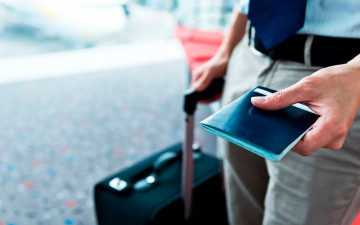What is international protection?
International protection is a legal condition granted to foreigners who cannot return to their home country due to persecution, war, or serious human rights violations. It includes refugee status and subsidiary protection.
In practice, this means that a person applying for such status is guaranteed the right to residence, legal protection, and basic material and social assistance.
Poland, as a member of the European Union and a party to the 1951 Geneva Convention, is obligated to provide protection to individuals who meet international criteria.
It is worth noting that international protection in Poland is not automatically granted to every foreigner—each case is considered individually. Officials verify whether returning to the country of origin would expose the person to a real risk of persecution, torture, the death penalty, or other threats.
Who can apply for international protection in Poland?
Individuals who can prove that there is a real threat to life or freedom in their country can apply for international protection. Most often, these are political refugees, individuals persecuted for their religious beliefs, sexual orientation, nationality, social activities, or membership in a particular ethnic group.
People who do not meet the criteria for refugee status but would be at risk of serious harm if returned may also apply. In such cases, they are granted subsidiary protection. The difference between these forms is that refugees receive broader rights, such as access to a foreigner's passport and the possibility of obtaining citizenship more quickly, while subsidiary protection is time-limited and requires periodic extension.
It's worth adding that an application for international protection in Warsaw or elsewhere can also be submitted by the entire family, and the procedure covers both adults and children. Thanks to this, Poland also provides protection to dependents who would otherwise be unable to assert their rights on their own.
How to submit an application for international protection?
An application for international protection and subsidiary protection in Poland can be submitted:
- at the border, during border control,
- at the Voivodeship Office,
- at the Office for Foreigners in Warsaw.
The procedure for obtaining international protection requires a personal appearance, completing a form, providing biometric data, and undergoing a detailed interview. The applicant should provide reasons why they cannot return to their home country. Evidence is important—documents, certificates, photos, medical reports, and witness accounts.
In some cases, the foreigner is directed to a reception center, where they receive accommodation and support until the proceedings are completed. Submitting an application automatically grants them legal stay in Poland until a decision is issued.
What happens after submitting an application?
After submitting the application, a detailed administrative procedure conducted by the Office for Foreigners begins. The applicant receives a Temporary Foreigner Identity Certificate (TZTC), which allows them to legally reside in Poland.
Then, a hearing is held, during which officials verify the evidence and circumstances presented. The process is individual and confidential. Depending on the case, a decision may be issued after several months or only after a year.
Persons applying for international protection are entitled to accommodation in a center, meals, social benefits, and medical assistance. If the decision is positive, refugee status or subsidiary protection is granted, while a negative decision results inthe need to leave Poland or the possibility of appealing to an administrative court.
What rights do people applying for international protection have?
Foreigners applying for international protection in Poland can exercise many rights. The most important are:
- The right to social assistance (accommodation, meals, pocket money).
- The right to education for children and language courses.
- The right to healthcare.
- Access to free legal assistance and an interpreter during proceedings.
After being granted protection, refugees have the right to work, receive identity documents, apply for family reunification, and benefit from integration programs. The rights for subsidiary protection are similar, although the duration of stay is determined by an administrative decision and requires regular renewal.
What organizations offer assistance in the protection application process?
Numerous non-governmental and international organizations offer assistance in the process of applying for international protection in Poland. The most important of them are:.
- UNHCR—UN High Commissioner for Refugees,
- Helsinki Foundation for Human Rights,
- Caritas Poland,
- Association for Legal Intervention,
- Ocalenie Foundation,
- Local initiatives in Warsaw, Krakow, Gdansk, and other large cities.
These organizations support foreigners at every stage of the procedure: from completing the application, through preparing documents, to legal representation before courts. They also provide psychological and integration support, which is crucial for people who have experienced trauma in their home country.
Frequently Asked Questions
Question
Can a foreigner obtain international protection in Poland?
Answer
Yes, protection is available to people who cannot return to their home country due to a life-threatening situation or persecution. It includes refugee status or subsidiary protection and gives the right to legal residence in Poland.
Question
What is the procedure for submitting an application for international protection?
Answer
The application is submitted at the border, at the Voivodeship Office, or at the Office for Foreigners in Warsaw. Biometric data, a form, and an interview are required. The procedure takes several months and requires the foreigner's full cooperation.
Question
What rights do people applying for international protection have?
Answer
They have the right to housing, financial assistance, education, and healthcare. Children can attend school, and foreigners can take language courses. After a positive decision, they obtain residence permits and access to the labor market.
Question
What is the difference between international protection and subsidiary protection?
Answer
Refugee status is granted to persecuted individuals, while subsidiary protection is granted to those who could suffer serious harm if returned to their home country. Both forms provide the right to residence and international protection in Warsaw.
Питання
What organizations support people seeking protection?
Відповідь
Assistance is offered by organizations such as UNHCR, the Helsinki Foundation for Human Rights, Caritas, and the Association for Legal Intervention. These organizations provide counseling, translation, legal and psychological support, especially in large cities like Warsaw.
International Protection in Poland, international protection Warsaw. It is a key support mechanism for foreigners who cannot return to their home country due to life-threatening situations, war, or persecution. It provides them with the right to legal residence, access to basic services, and the opportunity for social integration. The procedure is individual and requires documentation of threats, but thanks to it, Poland fulfills its obligations under international law, offering safety and a chance for a new life to those in need.





























